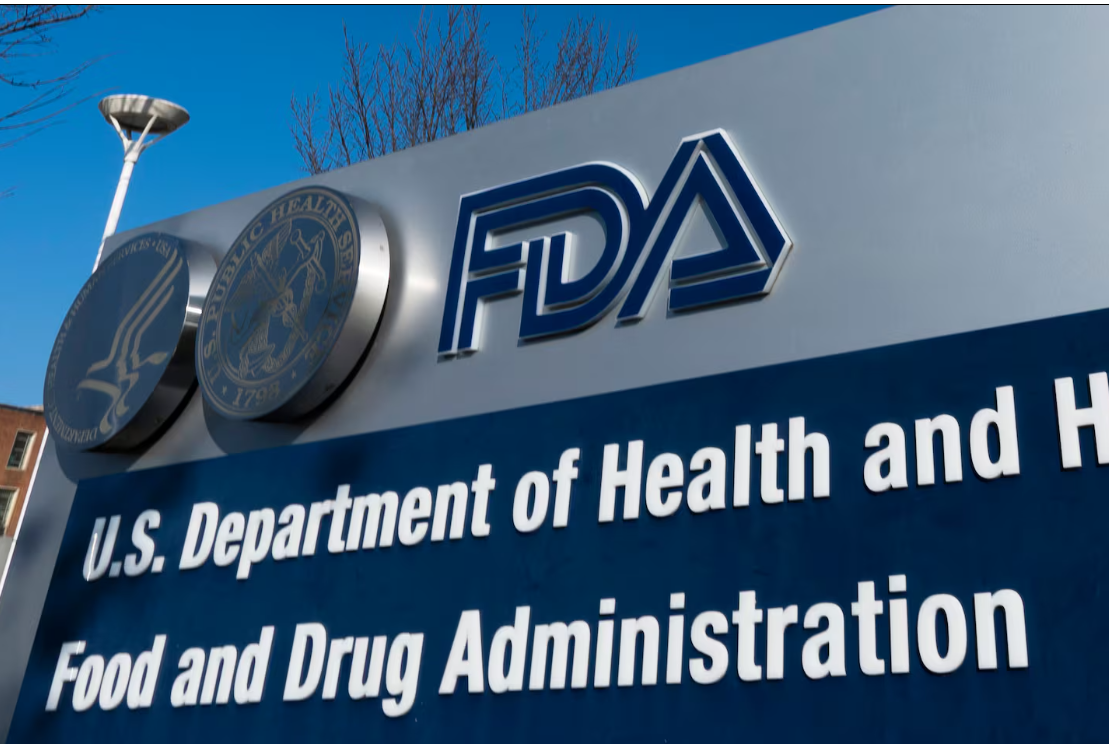FDA 批准血液检测结肠癌

【中美创新时报2024 年 7 月 30 日编译讯】(记者温友平编译)美国食品和药物管理局周一批准了一项新的结肠直肠癌筛查测试,该测试只需要血液样本,并且可以在癌症早期发现,并且通常可以治愈。《纽约时报》记者Gina Kolata对此作了下述报道。
对于许多人来说,常规血液检查比结肠镜检查或粪便样本检查更容易获得。但由加利福尼亚州帕洛阿尔托的 Guardant Health 进行的血液测试有一个局限性。与其他结肠和直肠癌筛查测试不同,它在发现癌前生长方面记录不佳。去除这些生长物可以预防癌症。
这项名为 Shield 的测试将在一周内上市。公司发言人 Matt Burns 表示,Guardant 将在那时公布其标价。它被批准用于 45 岁及以上患结肠癌风险一般的人群。
尽管这种血液检测存在局限性,但人们希望它能够鼓励更多人接受结肠直肠癌筛查,结肠直肠癌是美国第二大癌症相关死亡原因。预计今年将有 53,000 名美国人死于结肠直肠癌。
定期筛查可以预防多达 73% 的死亡。但是,尽管目前的指导方针建议从 45 岁开始进行筛查,但多达 25% 至 50% 的应接受筛查的人并没有接受筛查。
问题在于说服更多人接受筛查。这就是新测试的用武之地。对于患者来说,它很简单——可以在医生办公室作为常规体检的一部分获取血液样本,也可以在商业实验室获取。
Shield 检测利用了癌细胞和大息肉(结肠内壁上的细胞团块,有时会变成癌症)会将 DNA 片段释放到血液中这一事实。通过检测这些 DNA 片段,血液检测可以发现癌症和一些息肉。
3 月 13 日,《新英格兰医学杂志》发表了一项研究,Guardant 报告称其 Shield 检测发现了 87% 的早期可治愈癌症。早期癌症的五年生存率为 91%,而如果癌症扩散到结肠外,则为 14%。
该检测的假阳性率为 10%。但它只发现了 13% 的大息肉,而结肠镜检查的假阳性率为 95%。
5 月 23 日,一个为 FDA 提供建议的委员会建议批准血液检测。但该组织警告称,其无法预防癌症是一个严重的限制,并表示他们支持这种筛查,因为它可能会促使那些忘记或避免接受结肠直肠癌检测的人接受筛查。
目前的筛查包括每三到五年进行一次粪便检测或每十年进行一次结肠镜检查。
一些患者拒绝接受粪便检测,因为粪便检测要求他们将粪便样本邮寄到实验室,以检测可能因癌症而泄漏的异常 DNA 和血液。
其他人避免接受结肠镜检查,因为准备进行该检查可能需要禁食一天并服用强效泻药来清洁结肠。然后,就在结肠镜检查之前,患者会接受麻醉,这意味着他们可能会失去一天的工作,并且必须有人帮助他们在检查后回家。
但选择血液检测的人可能无法避免结肠镜检查:如果检查表明患者可能患有结肠直肠癌或大息肉,他们将需要进行该检查以找到并切除癌症或息肉。
Guardant 表示,该测试符合 Medicare 的承保要求。伯恩斯表示,对于拥有 Medicare B 部分的人来说,应该没有额外费用。对于拥有商业保险或 Medicare Advantage 的人来说,自付费用将取决于计划。
题图:美国食品和药物管理局的标志在马里兰州银泉市的办公室外展示。Manuel Balce Ceneta/美联社
附原英文报道:
FDA approves blood test for colon cancer detection
By Gina Kolata New York Times,Updated July 29, 2024
A sign for the US Food and Drug Administration is displayed outside their offices in Silver Spring, Md.Manuel Balce Ceneta/Associated Press
The Food and Drug Administration on Monday approved a new screening test for colorectal cancer that requires only a sample of blood and can find cancers when they are early stage and usually curable.
For many people, a routine blood test is easier to get than a colonoscopy or a fecal sample test. But the blood test, made by Guardant Health of Palo Alto, California, comes with a limitation. Unlike other screening tests for colon and rectal cancers, it has a poor record of finding precancerous growths. Removal of those growths can prevent cancer.
The test, named Shield, will be available within a week. Guardant will announce its list price at that time, said Matt Burns, a company spokesperson. It is approved for people ages 45 and older who are at average risk for colon cancer.
The hope is that the blood test, despite its limitation, can encourage more people to be screened for colorectal cancer, the second-most common cause of cancer-related deaths in the United States. As many as 53,000 Americans are expected to die from colorectal cancer this year.
Regular screening can prevent as many as 73 percent of those deaths. But although current guidelines recommend screenings starting at age 45, as many as 25 percent to 50 percent of people who should be getting screened are not.
The problem is convincing more people to be screened. That is where the new test comes in. It is simple for patients — the blood sample can be obtained at a doctor’s office as part of a routine physical exam, or at a commercial lab.
The Shield test takes advantage of the fact that cancer cells and large polyps — clumps of cells on the lining of the colon that occasionally turn into cancers — shed fragments of DNA into the blood. By detecting those DNA fragments, the blood test can find cancers and some polyps.
In a study published March 13 in The New England Journal of Medicine, Guardant reported that its Shield test found 87 percent of cancers that were at an early and curable stage. The five-year survival rate for early stage cancers is 91 percent as compared with 14 percent if the cancer has spread outside the colon.
The false positive rate of the test was 10 percent. But it only found 13 percent of large polyps as compared with 95 percent with a colonoscopy.
On May 23, a committee that advises the FDA recommended that the blood test be approved. But the group cautioned that its inability to prevent cancer is a serious limitation and said they endorsed it because it may prompt people who forget or avoid colorectal cancer tests to be screened.
Current screening includes fecal tests every three to five years or a colonoscopy every 10 years.
Some patients resist fecal tests that require them to mail samples of their feces to a lab to test for abnormal DNA and blood that can leak from cancers.
Others avoid colonoscopies because preparation for the procedure can require up to a day of fasting and taking a powerful laxative to cleanse the colon. Then, just before the colonoscopy, patients get anesthesia, which means they could lose a day of work and that someone must help them get home afterward.
But people who opt for a blood test may not escape having a colonoscopy: If the test indicates that the person might have colorectal cancer or a large polyp, they will need the procedure to find and remove the cancer or polyp.
Guardant said the test meets Medicare’s requirements for coverage. For those with Medicare part B there should be no additional cost, Burns said. The out-of-pocket cost for those with commercial insurance or Medicare Advantage will depend on the plan.

